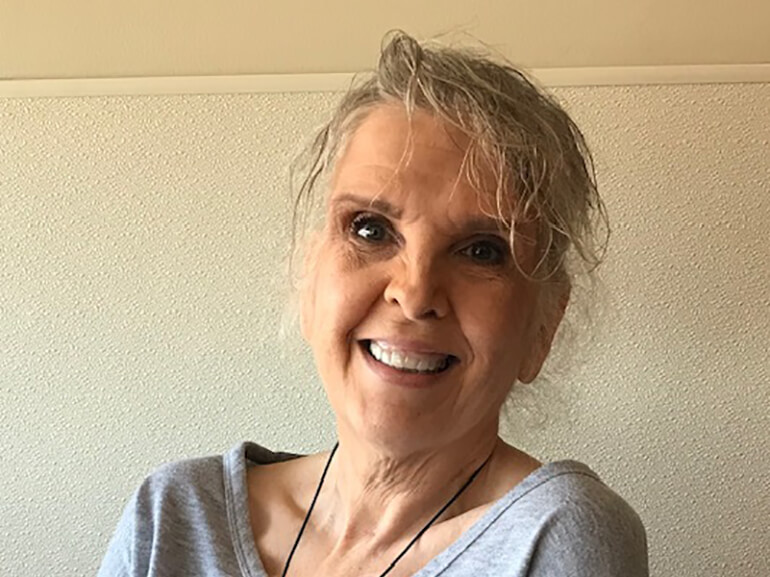Melissa's story

Melissa Herrmann, 59, spent 25 years at an alternative high school teaching social studies as well as fine and practical arts before retiring. She is also an artist, jeweler and silversmith. Having endured a number of heart operations over the years due to an underlying genetic condition, Melissa expected that a surgery to repair an aneurysm in her abdomen wouldn’t be any worse than what she had already experienced. Unfortunately, there were post-surgery complications that caused swelling to the spine and damage to her kidneys and left her with paraplegia, or paralysis of the legs and lower body.
After a brief stay at another rehabilitation hospital, Melissa was transferred to SSM Health Rehabilitation Hospital – Bridgeton, because in her words, “I heard it was the best facility for the type of injury that I had.”
Upon admission, Melissa required maximum assistance to get in and out of bed and needed help with all aspects of her personal care. She was also unable to sit independently due to balance issues. Melissa’s care team of physicians, nurses and therapists worked to put together a treatment plan that would allow her to live as independently as possible.
In physical therapy, Melissa worked with her therapists on exercises to strengthen her upper body and improve control of her core and balance for sitting. They also spent time on tasks designed to improve her endurance so that she would be able to use her wheelchair more easily. “What benefitted me most was the strength training because when I came in I was so weak,” Melissa said.
Occupational therapists worked with Melissa on modified techniques and taught her to use adaptive equipment so that she could get dressed in bed and perform her personal care safely. Therapists also worked with Melissa on new ways to cook and clean in her home so that she could remain independent.
After 54 days of hard work and intensive physical and occupational therapy, Melissa was able to sit at the edge of the bed on her own. She still needed assistance to get out of bed and use of a transfer board to get into her wheelchair, but she was making progress. Once in the wheelchair, Melissa was able to propel herself for long distances indoors and outdoors. She was also able to dress and bathe herself using specialized equipment for ease and safety.
When recalling the turning point in her recovery, she said, “Being transferred to SSM was key because I finally started getting better. Before I came here, I felt like I was treading water and just trying to stay alive.”
Prior to discharge, Melissa’s sister and son attended family training at the hospital to help her once she returned home. They also remodeled Melissa’s house so it could be accessible by wheelchair.
Melissa plans to continue her recovery at the SSM Health Day Institute and is looking forward to spending time with her cat again. She describes her overall experience at SSM Health Rehabilitation Hospital – Bridgeton as “excellent.” Melissa’s advice for others who are dealing with recovery is to “never give up and just keep working, because the stronger you get the better off you will be. Don’t be defined by your limitations.”